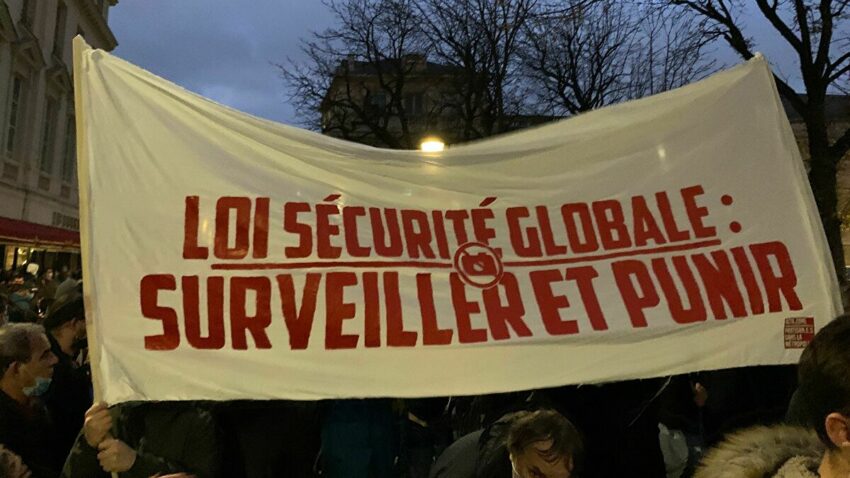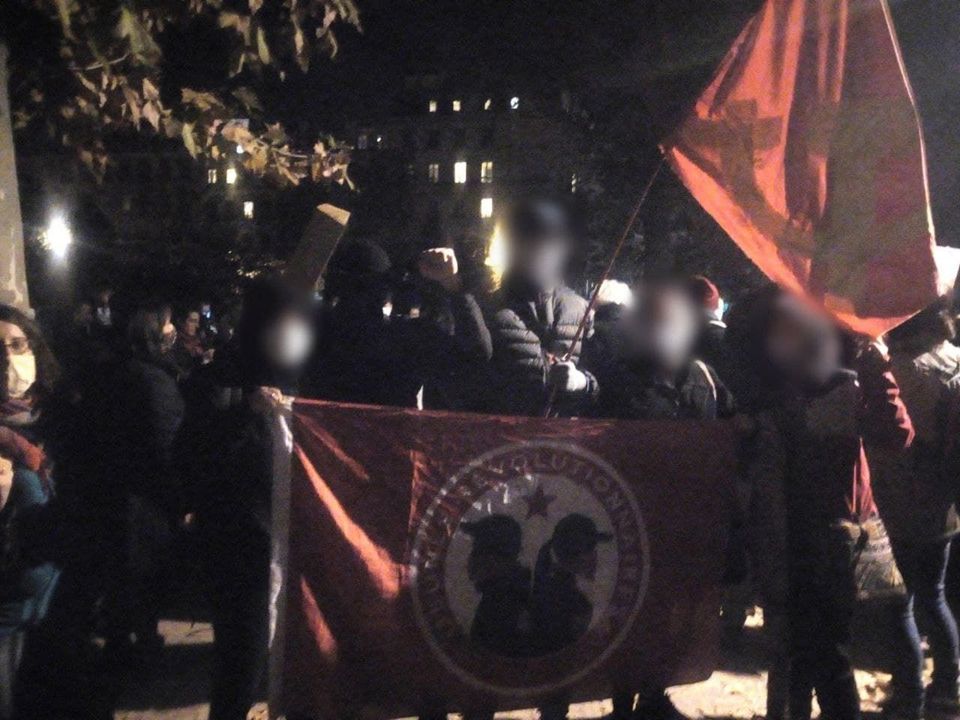Already on the 16th of September, the French Minister of the Interior announced a new amendment to the law, which has now been discussed in the National Assembly on the 17th of November.
The subject of the discussions is The Law of "Global Security". This law provides for several articles which allow the police to act even more arbitrarily against people. For example, Article 24 of the draft law, which is intended to prohibit people from "disseminating the image of the face or any other element of identification of an officer of the national police or a member of the national gendarmerie, with the exception of his individual identification number, when he is acting in the context of a police operation" and when this dissemination "is intended to damage his physical or psychological integrity". An offence is punishable by up to one year's imprisonment or a fine of 45,000 euros. While this de facto prohibits the documentation of police violence, the documentation on the part of the police is extended by mobile cameras: it should now be possible for the cameras to transmit images in real time to the command room. These images will also be used in the context of legal proceedings or in the pursuit of fugitives.
The powers of the police in the municipalities are also to be extended, which up to now have only been used for security at sports and cultural events and the like. If the draft law is adopted, they should also be responsible for offences such as squatting or for stopping and confiscating vehicles.
Also the use of UAVs (Unmanned Aerial Vehicle), i.e. drones during demonstrations, in situations where public order is disturbed, which can also happen if only the assessment is that there is a risk of disruption. These drones will also be used to prevent attacks on people and property in places where there is a lot of crime. Allegedly, the public will then be informed about the operations.
There are also discussions about whether private security services should also be allowed to take part in patrols or to carry out surveillance tasks on public roads as part of the "fight against terrorism".
In addition, there are more things, such as that persons who have committed crimes in certain cases against public officials, police officers, military personnel and firefighters cannot hope for a reduction in punishment. Police officers are now also allowed to enter public buildings armed. Or that only professionals are allowed to buy, possess or use pyrotechnics.
There were several protests against this new law in various French cities last week. In Paris, for example, several thousand people were on the streets despite the state of emergency imposed and let out their anger even in arguments with the police, who in turn used tear gas and water cannons. 33 people were arrested. The majority of them were arrested for holding an unauthorised meeting, three of them for being part of a group that had violent aims. The police also arrested several journalists. The Jeunes Révolutionnaires also took part in the protests in several cities.

"Law of Global Security: monitoring and punishing"











